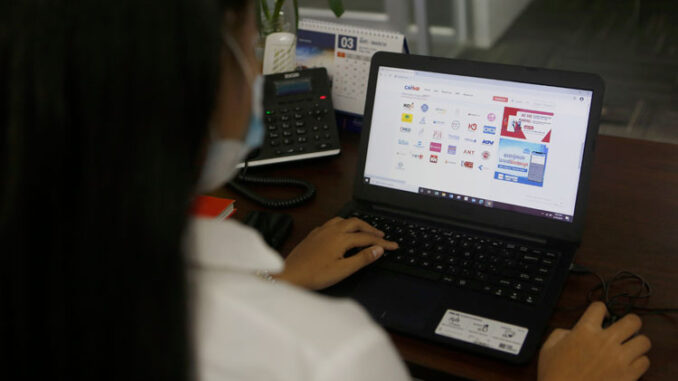
Digital marketing skills for women can help bridge Cambodia’s digital gender divide and strengthen the Kingdom’s e-commerce sector, according to experts.
Sreymom Hok, the co-founder of education company The Khmer Lesson says,“There is a big gap in digital literacy between men and women. Many still think that women cannot manage a business, should stay home and it is the role of men to bring money home. Sometimes women also think that the word ‘digital’ means IT [information technology], which is hard to learn. All this causes the lack of digital literacy.”
Hok made the remarks during a Business Chats with Facebook panel discussion. She recently joined Facebook’s #SheMeansBusiness programme as a teacher. The programme aims to deliver free digital marketing training to 1,700 female entrepreneurs across Cambodia by 2023.
It is supported by the US Agency for International Development (USAID) and the We Act Project under Private Agencies Collaborating Together (PACT).
Social commerce through Facebook’s platform is the most popular way for consumers to make online purchases. The pandemic propelled the trend to new heights, in part due to the introduction of Facebook Shops in May 2020, allowing sellers to reach consumers directly through their pages. Average revenue per user this year is expected to grow to $39.73 due to heightened demand for in-home shopping experiences.
Users also leverage the Facebook Live video feature to sell goods, making the need for digital marketing skills increasingly critical as the Kingdom embraces the Fourth Industrial Revolution.
Already, the initiative has guided some 600 entrepreneurs through a series of one-day workshops. Students are taught basic online marketing practices, how to create a Facebook business page and good content practices.
Revenues generated by e-commerce are projected to reach $222 million this year in Cambodia and grow to $313 million by 2025, according to Statista, a German company specialising in market and consumer data.
Veasna Am, owner of BCS Computer has completed the #SheMeansBusiness programme and said at the forum that she has applied her newly acquired knowledge to help run her business during the pandemic.
“When the COVID-19 pandemic hit, my business suffered enormously, but thanks to my digital marketing skills, I managed to increase online sales and we are prospering again,” she said.
PACT approximates that over 60 percent of businesses in the Kingdom are owned by women. However, women only account for 8.5 percent of students in IT-related post-secondary programmes, according to USAID data from 2018.
Yet, an International Finance Corporation (IFC) report found that women are more likely to use technology when conducting business, with 46 percent of women using mobile phones and only 41 percent of males.
“For women in particular, e-commerce and online solutions can help them tackle typical constraints such as time and mobility restrictions. This is because sales and financial transactions can be done anytime and from home, allowing for flexible time management,” the IFC said.

Leave a Reply